Opinion
Tuesday-night Trudeau
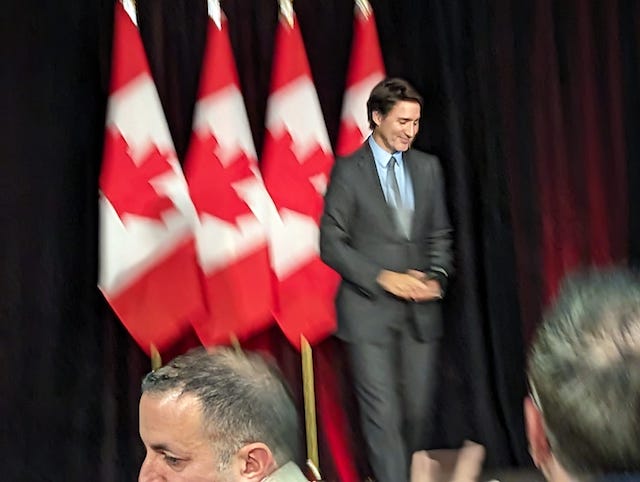
Justin Trudeau at Gatineau Airport, Oct 24 – Photo by PW
Posted with permission from Paul Wells
Justin Trudeau in a hangar, before the comeback, if there’s going to be one
If Justin Trudeau’s historic comeback happens, it will start sometime after Tuesday night, when he spoke to a Liberal Party of Canada fundraiser at the one-runway Gatineau Airport, 21 minutes’ drive from Rideau Cottage on the Quebec side of the river.
The prime minister is two months short of his 52nd birthday. Brian Mulroney was not quite 54 when he became the youngest undefeated prime minister, so far, to announce his retirement from politics. This is the sort of week when I look up numbers like that.
The polls since summer haven’t been kind to the Liberals. I have readers who get cross with me when I mention polls, but I cover the most polling-obsessed government in Canada’s history, and I must decline requests to unilaterally disarm.
Trudeau and his ministers do fundraisers all the time, as do the leaders and prominent MPs in other parties. The only difference on Tuesday was that I went to watch. After some embarrassing early headlines about fundraisers soon after the 2015 election, the Liberal Party changed its rules to increase transparency in fundraising. Now reporters get advance notice whenever Trudeau will be speaking at a fundraiser. I wanted to see what Trudeau says at such things these days, precisely because they’re routine events. Hearing how the prime minister talks to friendlies on a Tuesday night near home was, perhaps, the closest I could get to hearing how he talks to himself.
This event was a fundraiser for Gatineau MP Steven MacKinnon, a former Liberal Party national director who is serving as the government’s house leader while Karina Gould is on maternity leave. Two cabinet ministers were on hand too, Jean-Yves Duclos and Anita Anand. An organizer told the audience he’d been asked to get a smallish crowd out, “a good 50 or so;” since 67 people bought tickets, he was pretty pleased. The party had announced a ticket price up to $1,500. The crowd was of the sort that routinely gets described as overwhelmingly white and male when it’s a Conservative event, which means it was overwhelmingly white and male, but Liberal.
Trudeau spoke for twelve minutes. He opened by saying nice things about MacKinnon and thanked the two cabinet ministers. Poor Duclos thought he was just out to socialize, Trudeau joked, but Duclos is the minister of public services and procurement, “and around here we talk about a bridge.” Gales of laughter from the crowd. The riding association guy had also mentioned a bridge. There has been endless talk about a sixth bridge between Ottawa and Gatineau; neighbours near the various possible routes are leery, but a lot of people hope a new bridge would improve traffic flow, which often includes bumper-to-bumper heavy trucks on ordinary streets through the middle of Ottawa. A lot of the people who want the bridge the most run businesses. Judging from the PM’s choice of comic patter, they won’t have to wait long.
Trudeau thanked the crowd for coming out. “I know very well that everyone has plenty of choices for the various activities they could undertake on a Tuesday night in the month of October,” he said. This may have flattered the selection of fun activities in Gatineau on a Tuesday.
“You chose to come participate in a democratic event,” Trudeau continued. This was an instinct he could only applaud: “We know very well these days that it’s not always very motivating to get involved in politics. To raise your hand and say, ‘No, no, no, I want to participate in our democracy in an active and involved way. To take part in the conversations we’re having as a country in these difficult moments.’”
Trudeau contrasted this positive spirit with what certain other people, so far unnamed, like to do. “It’s very easy to point our finger at politicians, to complain about inflation or the pandemic or interest rates or labour shortages or housing or all these issues. It’s very easy, and many people decide to turn toward anger, anxiety, fear or division. Because it really pays over the short term, in politics, to rely on fear and division. But it’s so much more important to have a responsible, sensible approach, anchored in shared values. To try to bring us together rather than to divide us in an attempt to win a few points in the polls.”
One sensed an emerging central theme of contrast. “Your choice to come tonight to this Liberal event is enormously touching to me,” Trudeau said. “Because for eight years now, we’ve tried to be a government that stayed rooted in real things. In facts. In shared values. We bring people together rather than divide them for strategic reasons.”
Not only does his government, in his telling, think like good people, it does things good people will like.
“We manage to deliver for people. Even in extremely difficult moments like the ones we’re living through. People are struggling, because of the global context, extremely complex geopolitics that have a direct impact on pocketbooks, on groceries and rent. We have an important role to play as a government, to respond to today’s needs. That’s why we’ve made investments to help people pay their bills, to increase competition among the big grocers. We’re there to provide more daycare spaces. We’re there to help with dental care. We’re there to help with the Canada Child Benefit, which has lifted half a million children out of poverty in recent years. We’re there to create economic growth even as we fight against climate change.”
His audience for the night being mostly Quebecers and, as far as I could tell, mostly in business, the Liberal leader refined his course of general flattery to one of specific business-oriented flattery.
“I’m very proud of what we’ve been able to deliver in Quebec: Northvolt, Rio Tinto, REM… These are investments that show how much — here in Quebec where we’ve always understood that environmental protection and economic growth go together — everyone can make progress together.”
This was a pretty upbeat message, as partisan messages often are — we have the right ideas and the right results, and the other team is trying to wreck it all — but here again, as when he lamented how “not very motivating” the political life can be, Trudeau introduced a distinctly mournful note.
“As usual, it’s a bigger challenge to get this message out in the rest of Canada,” he said. At the risk of talking about polls, I couldn’t help thinking Trudeau was referring to recent pee oh ell ells that show Quebec as the only part of the country where his Liberals are in the lead. Despite big federal spending on Volkswagen ($13 billion) and Stellantis (probably more), the clean green future seems not to tempt a lot of Canadians. “It still feels far off, because the day-to-day is still difficult for many Canadians,” he said. “But we know very well that a society and a future are built step by step.…When we stay optimistic, when we’re reasonable, everything becomes possible in the future.”
This, he said, summing up, was “the political debate we’re having now…. Within two years — probably in two years — we’ll have elections.” That’s when people will get a chance to choose directions.
“Will we go back to the Conservative ways of trickle-down, cuts to social programs, advantages for the well-off in the hopes that they’ll eventually give everyone opportunity? It’s never worked and it won’t work better now.” Or would voters stick with the government Trudeau sees in the mirror? “We’re going to stay responsible but we’re going to keep investing,” he said.
Only now, at the end of his remarks, did Trudeau switch from French to English. “It’s always an incredible pleasure to spend time with people who are dedicated every day to building stronger communities and a stronger country.” And that was the end of that. The applause lasted for sixteen seconds. PMO staff led reporters out of the room — our access ends when the big guy stops talking.

A few observations on all this.
First, I’m struck by the way Trudeau narrowed down his expectation of election timing: “Within two years — probably in two years.” Probably anyone in a position of responsibility in any party would say an election could come any time, it’s wise to be ready, and so on. But in Trudeau’s mind, the supply and confidence agreement with the NDP seems likely to hold. He is not in a rush. Judgment Day isn’t until 2025.
Second, if he’s getting any advice to hit pause on carbon taxes, he sure doesn’t sound like he’s getting ready to take the advice. The heart of his case for himself is the notion that you can have clean energy and a thriving economy, and indeed that the latter depends on the former. That argument doesn’t require a carbon tax — theoretically, if you subsidize enough battery plants gasoline will become obsolete — but nothing in Trudeau’s fundraiser stump speech sounded like he was laying the predicate for a major retreat on carbon taxes.
BIG HONKING UPDATE, MINUTES LATER:
The feds have made a large announcement that shows the risks in making predictions. I quote:
“The Prime Minister, Justin Trudeau, today announced the government is moving ahead with doubling the pollution price rebate (Climate Action Incentive Payment) rural top-up rate, increasing it from 10 to 20 per cent of the baseline amount starting in April 2024. People who live in rural communities face unique realities, and this measure would help put even more money back in the pockets of families dealing with higher energy costs because they live outside a large city.
“Given the pressures faced by households and small businesses that use oil heating, the Prime Minister also announced that the government is moving ahead with a temporary, three-year pause to the federal price on pollution (fuel charge) on deliveries of heating oil in all jurisdictions where the federal fuel charge is in effect. This pause would begin 14 days from today. While the fuel charge is already returned to consumers through the pollution price rebate, this temporary pause would save a household that uses heating oil $250 at the current rate, on average, while the federal government works with provinces to roll out heat pumps and phase out oil for heating over the longer term.”
Third, and more generally, the case Trudeau was building was for more of the same. “It still feels far off, because the day-to-day is still difficult for many Canadians,” he said, which is how you talk when you’re hoping your ship comes in before people get a chance to pass judgment.
Incidentally, here I think it’s only fair to point out there’s been recent progress on files I often point to as evidence that Liberal plans never pan out. The Canada Growth Fund, the object of this newsletter’s first post, made its first investment this week, a $90 million equity play in a Calgary geothermal energy company. The Canada-US Energy Transformation Task Force held a second meeting. Maybe two years of process news like that will add up to an electorate that’s excited about Canada’s energy transformation. I mean, it’s possible.
Most of all, I was struck by how “more of the same” had better work for the Liberals, because if the boss has a better idea, he’s hiding it well. A leader who once ran on cost-of-living issues…
… is now running on the clean-energy future that feels tantalizingly out of reach, and lamenting his opponent’s insistence on running on cost-of-living issues. His best hunch about timing is that he has no reason to rush, and his best assessment of his work to date is that he needs to do more of it.
Liberals who feel more of a sense of urgency, futility or wasted energy will just have to get on board, I guess. The leader’s not for turning.
Subscribe to Paul Wells
Politics and culture as though they mattered.
2025 Federal Election
NDP Floor Crossers May Give Carney A Majority
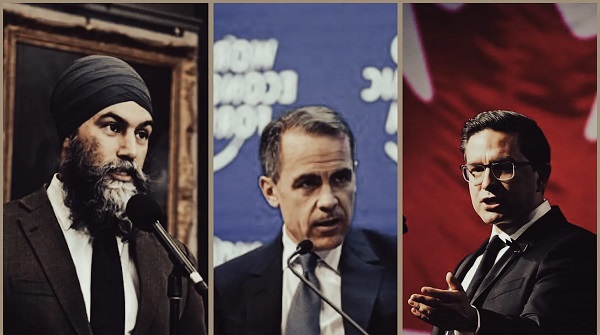
Walk this way! …singing, hey diddle diddle with the NDP in the middle…
Rumours are bouncing around that a number of NDP MPs are looking at potentially crossing the floor to join the Liberal Party of Canada and give Mark Carney the majority he is looking for. The final count for the Liberal Party was that they finished with 169 seats, a mere three seats short of the number needed to claim majority and not have to work with other parties to create a workable mandate.
From the NDP perspective, I sort of get it. After all, Singh lost in his own riding, the party no longer enjoys Official Party Status and all the accoutrements that come along with this (the biggest one being money), and the party is rumoured to be bankrupt. From an individual’s perspective, crossing the floor gives them four years of employment (beyond that may be more murky as many will say “I didn’t vote for that”), and if you are amongst the first to cross, your bargaining position (cabinet position) can enhance your political lot in life fairly materially. If this were to occur it will happen quickly as the law of diminishing returns happens exponentially faster should you be the fourth to cross the line (maybe the Lizzy will join the race!)
From the Liberal perspective, I’m not as convinced the benefits are as transparent, from a nation building perspective. Sure, you get the majority (and thus mandate) you wish to pursue, but you truly would be thumbing your nose at Canada when you know that many NDP votes metaphorically crossed the floor to vote during the election (likely without the foresight that it would result in the death of their party), and that the country is actually pretty evenly split between the Liberals and Conservatives. Language like “now is the time for Canada to unite” and “we need a strong mandate to make Canada strong, and now we have it” could be thrown around, but that can create real fractures should that occur.
Personally, I am hoping that Prime Minister Carney says no to any floor crossers, and works to bridge the divides that are significant within this country. There is no reason that Canada cannot be one of the greatest countries, other than getting in the way of ourselves. Now is the time for olive branches, not cactus areoles.
Thanks for reading William’s Substack!
Subscribe for free to receive new posts and support my work.
espionage
Longtime Liberal MP Warns of Existential Threat to Canada, Suggests Trump’s ’51st State’ Jibes Boosted Carney

 Sam Cooper
Sam Cooper
In striking remarks delivered days after Canada’s federal election, former longtime Liberal MP John McKay suggested that threats from President Donald Trump helped propel Prime Minister Mark Carney to power—and warned that Canada is entering a period of “existential” uncertainty. He likened the threat posed by Trump’s second term to the peril Taiwan faces from China’s Xi Jinping.
“This was the most consequential election of my lifetime,” said McKay, who did not seek re-election this year after serving as a Liberal MP since 1997. “I would always say, ‘This is the most important election of your lifetime,’ and usually I was right. But this time—I was really right. This one was existential.”
Explaining his assertion, McKay added: “I was thinking of the alienating and irritating comments by a certain president that Canada should become the 51st state. We should actually send President Trump a thank-you card for his stimulus to Canadian patriotism, which has manifested itself in so many different ways. Who knew that shopping at Loblaws would become a patriotic act?”
The Toronto-area MP, who has made several visits to Taiwan over the past two decades, drew a controversial comparison between how Taiwan faces the constant threat of invasion and how Canada is now confronting an increasingly unreliable United States under the influence of Trump-era nationalism.
McKay was the first speaker at an event co-hosted by the Government of Taiwan and the Macdonald-Laurier Institute, focused on the People’s Republic of China’s growing use of “lawfare”—legal and bureaucratic tactics designed to pressure Western governments into accepting Beijing’s One China Policy and denying Taiwan’s sovereignty. While China’s claims over Taiwan may appear to have gained tacit acceptance at the United Nations, U.S. expert Bonnie Glaser later clarified that Beijing’s position is far from settled law. The issue, she said, remains open to interpretation by individual governments and is shaped by evolving geopolitical interests. Glaser, a leading authority on Indo-Pacific strategy, added that subtle but meaningful shifts during both the first and second Trump administrations are signaling a quiet departure from Beijing’s legal framing.
“Our institutions are being bullied—that they will be denied involvement with the U.N. unless they accept that Taiwan is a province of China,” Glaser said.
McKay, framing most of his comments on the past election, argued Canadians now face subtle but real consequences when engaging with American products and institutions. He argued that Canada can no longer assume the United States will act as a reliable partner on defense or foreign policy. “Maybe a few weeks or months ago, we could still count on the security umbrella of the United States,” he said. “That is no longer true—and the Prime Minister has made that abundantly clear.”
Predicting that Prime Minister Mark Carney “may be a very unpopular politician within six months,” McKay warned Canadians to prepare for a period of sacrifice and difficult decisions: “We’re not used to asserting our sovereignty. Taiwan lives that reality every single day.”
Citing Canada’s pivot toward new defense arrangements—including the recent purchase of over-the-horizon radar from Australia instead of the United States—McKay said the country is entering a new era of security realignment. “New alliances, new consequences, new changes,” he said. “This will create some real disturbing issues.”
He contrasted China’s strategic approach with the erratic behavior of the United States under Trump: “President Xi conducts the trade war like a chess match—methodical, searching for new alliances. Our supposed security partner conducts it like flip-gut,” McKay said, referring to a children’s game he plays with his grandchildren. “Sometimes the piece turns over, sometimes it falls off the table. But the one guarantee is—there is no guarantee.”
Another speaker, Professor Scott Simon of the University of Ottawa, took a far sharper stance on Beijing’s role in the increasingly volatile geopolitical environment, describing China as part of a “new axis of evil” engaged in cognitive warfare targeting both Taiwan and Canada.
“We have to be part of the alliance of good,” Simon said. “China is part of that axis of evil. We have to be honest about that.”
Drawing on recent global crises—including the war in Ukraine and the October 7 Hamas attacks on Israel—Simon argued that democracies like Canada have lulled themselves into a false sense of security by believing that trade and engagement would neutralize authoritarian threats.
“For the past 40 years, we’ve been very complacent,” he said.
Expanding on Beijing’s tactics, Simon said: “They’re active against the Philippines, South Korea, Japan—and Taiwan is only part of it. What they’re using now is a combination of military threats—what we often call gray zone operations—but also cognitive and psychological warfare, as well as lawfare. And they use these techniques not just in Taiwan, but in Canada. And so Canada has to be a part of countering that lawfare.”
The Bureau is a reader-supported publication.
To receive new posts and support my work, consider becoming a free or paid subscriber.
Invite your friends and earn rewards
-

 Alberta19 hours ago
Alberta19 hours agoNew Alberta Election Act bans electronic vote counting machines, lowers threshold for recalls and petitions
-

 Alberta19 hours ago
Alberta19 hours agoHours after Liberal election win, Alberta Prosperity Project drumming up interest in referendum
-

 Alberta1 day ago
Alberta1 day agoPremier Danielle Smith responds to election of Liberal government
-
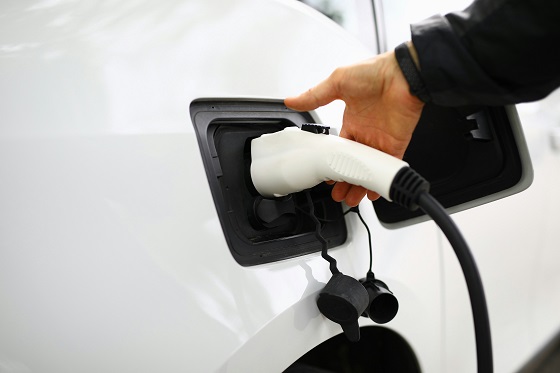
 Automotive2 days ago
Automotive2 days agoMajor automakers push congress to block California’s 2035 EV mandate
-

 Banks20 hours ago
Banks20 hours agoTD Bank Account Closures Expose Chinese Hybrid Warfare Threat
-
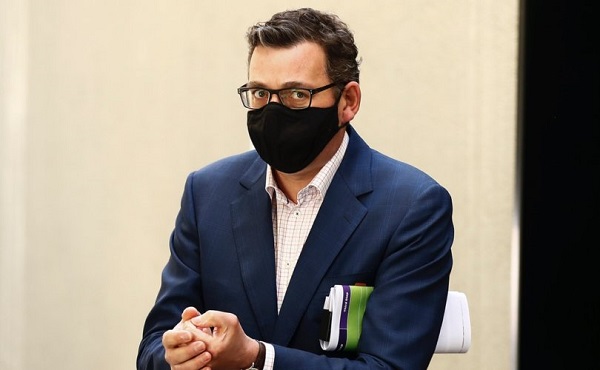
 COVID-192 days ago
COVID-192 days agoFormer Australian state premier accused of lying about justification for COVID lockdowns
-
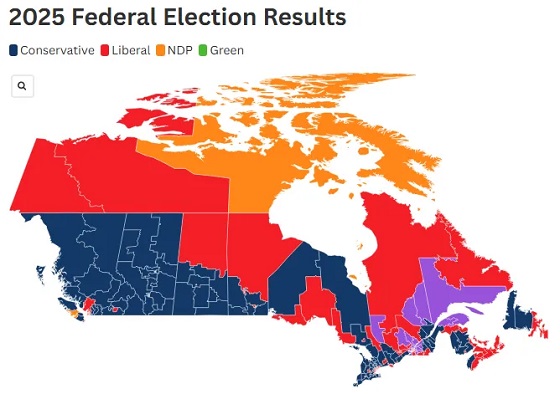
 2025 Federal Election19 hours ago
2025 Federal Election19 hours agoPost election…the chips fell where they fell
-

 Mental Health2 days ago
Mental Health2 days agoSuspect who killed 11 in Vancouver festival attack ID’d





